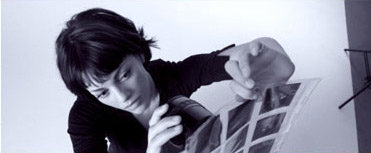|
|
 |
 |
| Department of Interior Architecture, Decorative Arts and Design |
 |
 |
 |
|
 |
| Landscape architecture: Urban ecology |
COURSE TITLE: Landscape architecture: Urban ecology
COURSE ID: Ν1-6050Δ
COURSE TYPE: Composite
COURSE CATEGORY: Elective
HOURS PER WEEK: 2 Theory + 4 Workshop
ECTS: 6
TYPICAL SEMESTER: 6th
AIM AND OBJECTIVES OF THE COURSE
This subject aims to support, cultivate and develop the student’s ability to design open urban spaces of a neighborhood scale (unbuilt or empty spaces, unified backyards, pedestrian zones, open public spaces, public gardens etc). Emphasis is given to the human dwelling of open/natural spaces as a primarily aesthetic expression which incorporates the social and the political dimensions of the environment.
COURSE DESCRIPTION
Literally ecology means the study of “oikos”. The philosophical meaning of the term “oikos” varies in different periods of human culture. As a term “ecology” was introduced into science in the last quarter of the 19th century, by the German biologist Ernst Haeckel. It is related to the protection of the natural environment considered as an “ecosystem”. Nowadays, the meaning of the term has broadened to include several “ecosystems” as the urban one. “Urban ecology” deals with the analysis of the relations between human beings and their environment within cities; it is aiming to the protection of the judged as necessary to be protected ecosystem in the city scale.
The purpose of this workshop is to reconsider the meaning of the term “ecology” departing from and conditioned by a philosophical approach. Heidegger points to “oikein” (dwelling) as a symbolic recreation of the world. The formation of an “ethos of oikein” is considered here as closely related to the aesthetic dimension of the environment. The “lived” experience of space is contrasted to an “instrumental” consideration of the environment as much to the “disinterested” modern aesthetics. The continuation between art and life, the active character of art as well as the humanistic function of the aesthetic action can be considered, as Arnold Bearleant proposes, the basic characteristics of an urban ecological approach in this sense. The philosophy of Maurice Merleau-Ponty on the one hand and Jacque Deleuze on the other, constitute the theoretical framework of this workshop.
Students have to work out projects dealing with open urban spaces of a neighborhood scale (unbuilt or empty spaces, unified backyards, pedestrian zones, open public spaces, public gardens etc). Emphasis is given to the human dwelling of open/natural spaces in its social and political dimensions. Collaboration with plastic arts (i. e. object trouves, performance art, installations, land art etc) support and motivate an artistic conception of architectural design within the particular social and political conditions.
EXPECTED LEARNING OUTCOMES
This subject provides the student with a theoretical and methodological framework for the design of open spaces of a neighborhood scale within urban environment.
BIBLIOGRAPHY
GREEK
1. Robert Sokolowski, Εισαγωγή στη Φαινομενολογία (μετ.-σχόλια Π. Κόντος), Εκδόσεις Πανεπιστημίου Πατρών, Πάτρα, 2003.
2. Maurice Merleau-Ponty, Η αμφιβολία του Σεζάν – Το μάτι και το πνεύμα (εισ-μετ. Αλέκα Μουρίκη), Εκδόσεις Νεφέλη, Αθήνα, 1991.
INTERNATIONAL
1. Maurice Merleau-Ponty, The Visible and the Invisible (ed. Claude Lefort, trans. A. Lingis), Northwestern University Press, USA, 1968.
2. Steven Holl, Juhani Pallasmaa, Alberto Perez-Gomez, Questions of Perception: Phenomenology of Architecture, περιοδικό a + u, ειδική έκδοση, Ιούνιος 1994.
|
| Created Date : 20/12/2014 |
|
|
|
| |
|
|
|